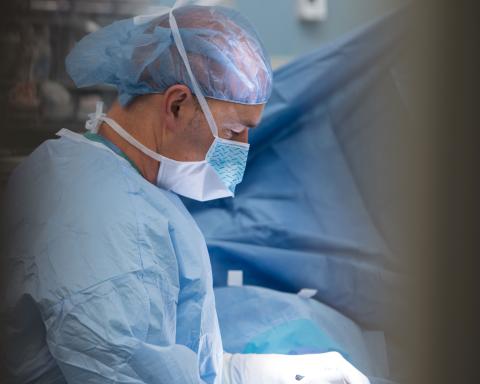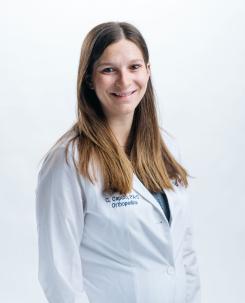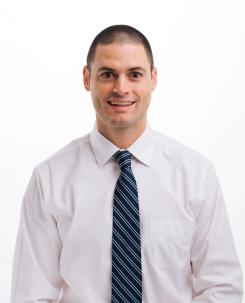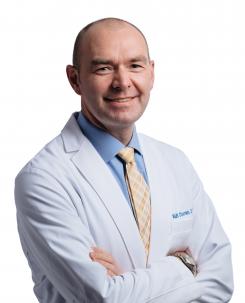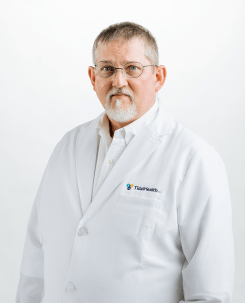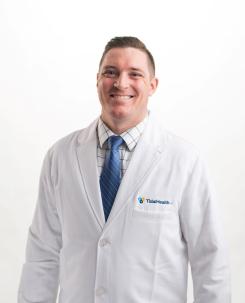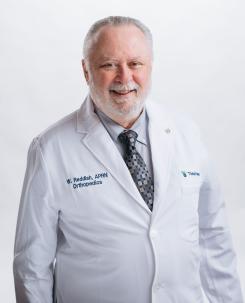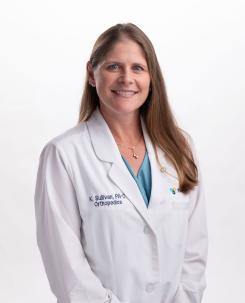Joint Replacement
Meet our providers
We’re with you at every step

We can help with a wide range of issues
- Hip osteoarthritis
Treated with anterior MAKO robotic hip replacement. This surgery spans about an hour, and you may be discharged from the hospital the same day. - Knee osteoarthritis
Treated with MAKO robotic knee replacement. This surgery spans about 40 minutes, and you may be discharged from the hospital the same day. - Meniscus injuries
A meniscus tear is a soft tissue injury causing sharp stabbing pain in the knee. This condition is corrected with minimally invasive surgery that requires a two- to three-centimeter incision to repair the damaged tissue. The surgery spans 15 to 40 minutes, and patients are discharged the same day.
- Carpal tunnel
The carpal tunnel is a narrow passageway in the wrist about an inch wide. When the canal is compressed, it can cause injury to the nerve. When bracing and injections fail, surgery can be performed. The procedure takes less than 10 minutes and does not require a hospital stay - DeQuervain Syndrome
This is a painful condition that affects tendons in the wrist. This condition is treated in the office with an injection and does not require a hospital stay.
1
Less pain, quicker recoveries
TidalHealth is pleased to offer MAKO Robotic-Arm Assisted Surgery, which leads to less pain and quicker recoveries. Using the MAKO, Dr. Doran is able to offer individualized treatment plans for improved joint function and pain relief.
2
Experience you can trust
While the MAKO can be found at other healthcare facilities, Dr. Doran’s experience cannot. Dr. Doran has performed more robotic joint replacement procedures than any robotic surgeon in the region, and he’s the most experienced surgeon in Delaware at performing robotic anterior hip surgery.
3
Patients come first
At TidalHealth, we focus on patient-centered care; we want you to have an appointment when you need it in a location that’s convenient for you. With online scheduling, three locations close to home and an Electronic Medical Record that improves communication among your care team, there’s no reason to look anywhere else.
4
We're proud to care for our friends, families and neighbors
A Delaware local, Dr. Doran graduated from Milford High School and the University of Delaware. After earning his Doctor of Osteopathic Medicine and completing his residency at the Philadelphia College of Osteopathic Medicine in Philadelphia, Pa., he returned home to care for his hometown — the people he grew up with. Like TidalHealth, Dr. Doran knows the best care is delivered on the foundation of strong relationships and genuine connections.
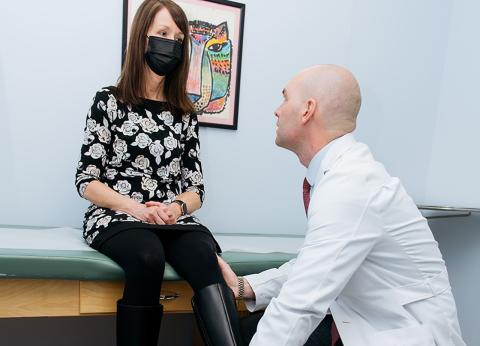
We provide the service you need
- Anterior robotic hip replacement surgery. Anterior hip replacement is performed with the patient lying on their back. This allows for both legs to be prepared for surgery improving the post-operative leg length match. The approach through the front of the hip decreases the chance of dislocations and improves post-operative pain. Instead of cutting through the tendons and muscles, surgery is performed by meticulously weaving through the muscles. It takes approximately 45-60 minutes to perform the procedure, often without the use of general anesthesia. This helps with returning home the same day of surgery. Although complete recovery varies from person to person, most patients say they feel substantially better immediately after surgery compared to prior to surgery.
- Robotic knee replacement surgery. Knee replacement with the MAKO Robotic Arm-Assisted Surgical System allows Dr. Doran to provide reproducible precision in reference to the bony cuts performed during surgery that match the patient’s individual soft tissue anatomy. A well-balanced knee can feel less mechanical and more stable. Because of the MAKO technology, there is less soft tissue dissection/trauma and therefore less post-operative pain. It takes approximately 30-45 minutes to perform the procedure, often without the use of general anesthesia. This helps with returning home the same day of surgery. In fact, more than 50 percent of patients do not require an overnight hospital stay. Although complete recovery varies from person to person, most patients say they feel substantially better in two to three weeks.
